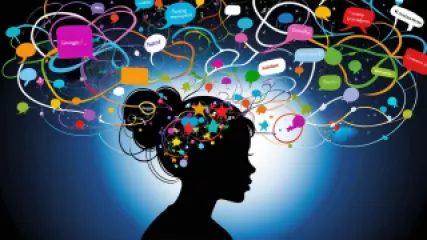My Journey Understanding Cognitive Distortion Types
Introduction
Throughout my life, I have faced numerous challenges that have tested my mental strength and resilience. One of the most significant hurdles I encountered was dealing with cognitive distortions. These distorted thought patterns often clouded my judgment and prevented me from seeing situations objectively. However, my journey to understanding cognitive distortion types has been transformative, allowing me to gain clarity and improve my overall well-being.
The Beginning of My Journey
My journey began when I first learned about cognitive distortions during a therapy session. Cognitive distortions are irrational thoughts or beliefs that can negatively impact our perception of reality. They often stem from underlying insecurities, fears, or past experiences. These distorted thoughts can lead to negative emotions, hinder problem-solving skills, and create barriers to personal growth.
I was initially intrigued by the concept of cognitive distortions and recognized that they played a significant role in my own life. I decided to delve deeper into the subject and explore the different types of cognitive distortions.
Identifying Cognitive Distortion Types
As I delved into my research, I discovered that there are several common types of cognitive distortions. Understanding these patterns helped me identify them in my own thinking and begin the process of challenging and reframing them.
1. All-or-Nothing Thinking
All-or-nothing thinking, also known as black-and-white thinking, is a cognitive distortion that involves viewing things in extremes. People who engage in this type of thinking tend to see situations as either perfect or a complete failure, with no room for middle ground. This kind of thinking can lead to feelings of disappointment, frustration, and low self-esteem.
2. Overgeneralization
Overgeneralization is another common cognitive distortion that involves making broad, sweeping conclusions based on a single event or piece of evidence. For example, if one job interview goes poorly, an individual might conclude that they will never be successful in any job interview. Overgeneralization can lead to self-doubt, limiting beliefs, and missed opportunities.
3. Mental Filtering
Mental filtering is a cognitive distortion where individuals focus solely on the negative aspects of a situation and filter out any positive elements. This distorted thinking pattern can lead to a pessimistic outlook, increased stress levels, and feelings of hopelessness.
4. Jumping to Conclusions
Jumping to conclusions is a cognitive distortion that involves making assumptions without having sufficient evidence or facts to support them. This type of thinking often manifests as mind-reading (assuming we know what others are thinking) or fortune-telling (predicting negative outcomes without any basis). Jumping to conclusions can lead to misunderstandings, strained relationships, and unnecessary anxiety.
5. Emotional Reasoning
Emotional reasoning is a cognitive distortion where individuals believe that their emotions reflect the truth, regardless of any evidence to the contrary. For example, if someone feels anxious about a social gathering, they might conclude that something terrible will happen, even if there is no logical reason to believe so. Emotional reasoning can significantly impact decision-making and hinder personal growth.
6. Should Statements
Should statements involve having rigid and inflexible expectations for oneself or others. When engaging in should statements, individuals often impose unrealistic demands and feel frustrated or disappointed when these expectations are not met. This cognitive distortion can lead to feelings of guilt, self-blame, and a constant sense of falling short.
7. Catastrophizing
Catastrophizing is a cognitive distortion that involves blowing things out of proportion and imagining the worst-case scenario in any given situation. This type of thinking can lead to excessive worry, anxiety, and panic. Catastrophizing often robs individuals of their ability to find solutions and cope effectively with challenges.
8. Personalization
Personalization is a cognitive distortion where individuals attribute external events or situations to themselves, even when there is no logical connection. This distorted thinking pattern often leads to unnecessary self-blame, feelings of inadequacy, and an overemphasis on one's perceived shortcomings.
Overcoming Cognitive Distortions
Understanding the different types of cognitive distortions was the first step on my journey toward overcoming them. However, it was not enough to merely recognize these patterns; I needed to develop strategies to challenge and reframe these distorted thoughts.
1. Awareness: The first step in overcoming cognitive distortions is becoming aware of them. Pay attention to your thoughts and emotions, and question whether they are based on evidence or distorted thinking.
2. Challenge the Distortion: Once you have identified a cognitive distortion, challenge its validity. Look for evidence that supports or contradicts your distorted thought. This process helps you gain a more balanced perspective.
3. Reframe: Replace the distorted thought with a more rational and realistic one. This reframing process involves examining the evidence and considering alternative explanations or viewpoints.
4. Practice Mindfulness: Mindfulness techniques, such as meditation and deep breathing exercises, can help you become more present and aware of your thoughts. This practice allows you to observe your cognitive distortions without judgment and respond to them more effectively.
5. Seek Support: If you are struggling to overcome cognitive distortions on your own, consider seeking support from a therapist or counselor. They can provide guidance and help you develop personalized strategies for managing these distorted thoughts.
Conclusion
My journey to understanding cognitive distortion types has been both challenging and rewarding. By recognizing and challenging these distorted thoughts, I have been able to gain a clearer perspective on various aspects of my life. It is important to remember that overcoming cognitive distortions takes time and practice. With patience and perseverance, it is possible to manage and recover from cognitive distortions, leading to improved mental well-being and a more positive outlook on life.






